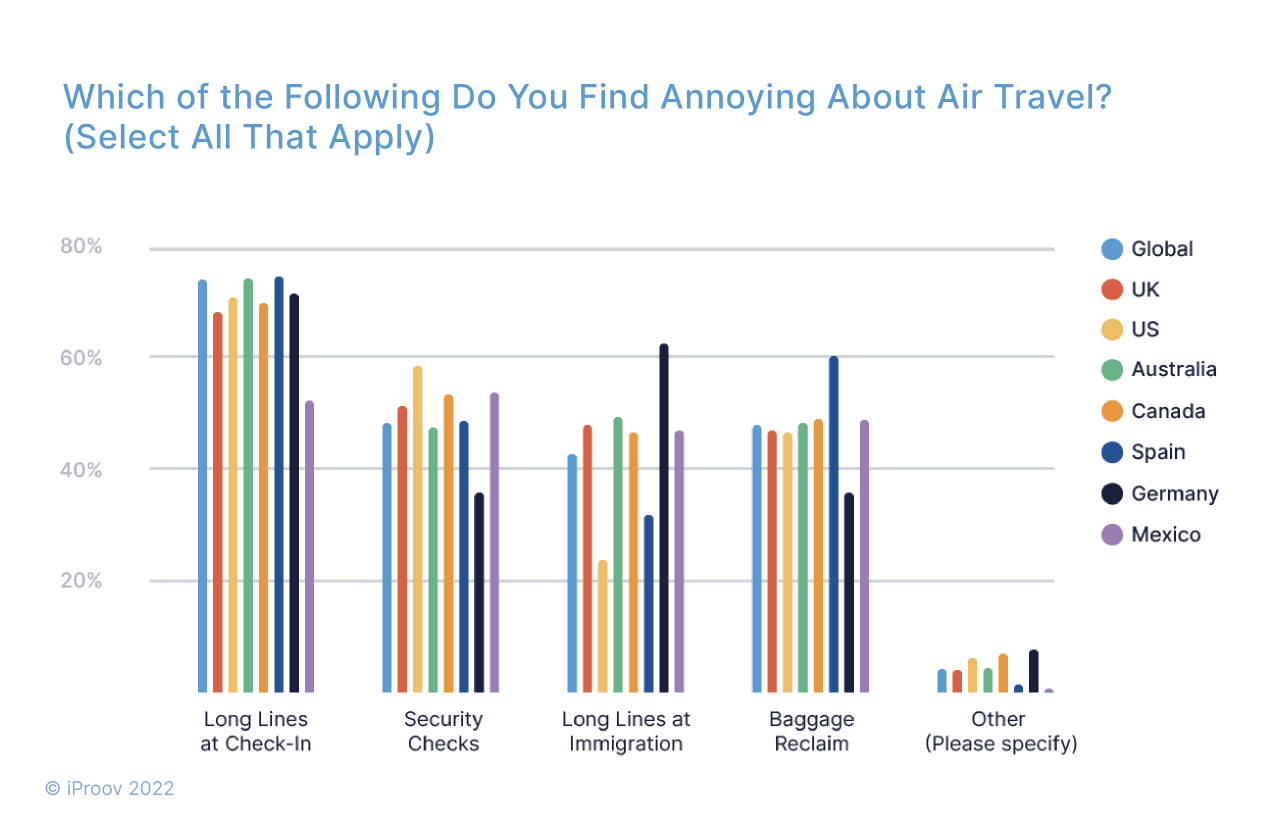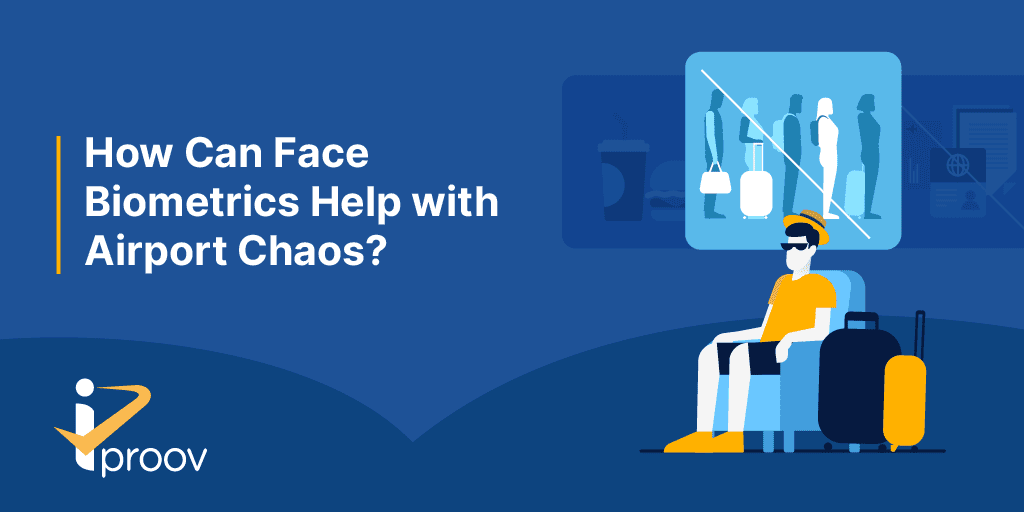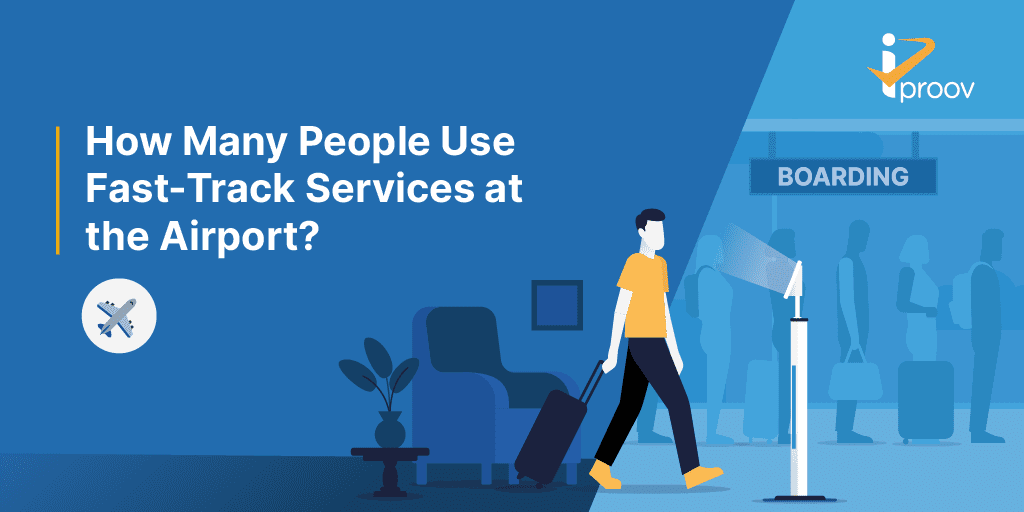June 21, 2022
What’s the thing that annoys you most about air travel? Is it the long lines at check-in? Having to wait for other passengers to remove liquids and laptops at security? Or maybe it’s just the waiting around?
In our most recent consumer survey, we asked 16,000 people around the world to tell us what they find most irritating about air travel. Our reason for this is simple: iProov has created an airport biometric solution that reduces waiting time at airports by enabling travelers to complete ID and ticket checks on their smartphones before they even set off. We do this using secure online face verification – it’s quick, simple, and effective.
This isn’t just a future vision — it’s already in action. iProov is trusted by the U.S. Customs and Border Protection (CBP) and major airports such as Orlando International to deliver faster, more secure travel through its Seamless Border Entry and Enhanced Passenger Processing programs. These deployments use face biometrics to accelerate identity verification, letting travelers move through border checks without presenting documents — helping reduce queues and improve throughput at major travel hubs.
We wanted to know if travelers would appreciate being able to bypass lengthy lines at check-in. Read below for the results, or jump straight to our full report for all the data.
What Annoys Travelers Most About Air Travel?
For most passengers, air travel can involve bottlenecks at several stages. These include standing in line before check-in, enduring security checks, waiting at immigration, and pausing again at baggage reclaim.
According to our survey, check-in lines are the top frustration:
- 70% of respondents said that long lines at check-in annoyed them, compared to only 48% who complained about security or baggage reclaim, and 43% who found immigration tiresome.
- Spanish respondents were most annoyed by long lines at check-in (75%), while Mexican respondents were least annoyed (52%).
- Mexico was the only country where check-in was not the biggest annoyance – security scored higher (54%).
- Respondents in Germany were most likely to be annoyed by immigration lines (63%), while baggage reclaim was most unpopular in Spain (61%).
- Other annoyances were highlighted by the respondents, although none obtained more than a handful of mentions. These included: cancelations; delays; waiting; cramped seating; layovers; lost luggage; no smoking; having to wear masks; vaccine mandates; rude staff and passengers; getting to and from the airport; other people.
See the full breakdown below:

For more travel stats, get your free copy of our travel report here.
Long lines at check-in are a real annoyance for travelers at airports. There are demonstrable opportunities for travel providers to improve customer experience by streamlining the check-in process and reducing congestion.
How can airports reduce long lines at check-in by using face biometric technology?
Long lines at check-in can often be a symptom of inefficiency rather than true incapacity to meet demand. Over-reliance on manual checks and the need for travelers to show the same documents multiple times are just two of the common reasons for this.
The solution is secure biometric verification technology. The reason biometrics can save so much time and frustration is twofold:
- Travelers can verify identity at home rather than at the airport: face biometrics secured by iProov’s Dynamic Liveness technology enables travelers to verify their identity documents from home, linking their face to tickets and documents. This means that one of the most time-consuming steps of travel is completed before even arriving at the airport, saving significant time and resources.
- Travelers can breeze through lines using their face as their ticket: because your face is your ticket, it can be verified quickly by leveraging biometric technology at the airport, which is quicker than manual checks.
The saved labor hours can be put towards other things, such as increased personalization. This could include providing upgrades for frequent flyers, which can improve customer loyalty to specific airlines or airports.
How does biometric-enabled ID verification work?
A traveler is sitting at home the day before their flight or international train journey. With their smartphone, they start the remote enrollment process.
- iProov verifies their identity against their ID document, proving genuine presence and linking their face to their ticket.
- The next day, the traveler arrives at the terminal – and walks through biometric airport check-in gates using their face.
🎥 Watch the animation to understand contactless “couch-to-gate” travel from iProov.
Why should travel providers choose iProov to deliver biometric-enabled check-in at the airport?
iProov delivers market-leading face biometric technology, trusted by the world’s most security-conscious organizations such as the U.S. Department of Homeland Security.
iProov is already making contactless check-in a reality in collaboration with Eurostar. Here is what some of travelers have said about their experience:
- “There’s no need to present documents (no looking into pockets/bags/phones)”.
- “This feels like 21st century…the technology exists and it is good to see it can be used to make travel a more comfortable, learner experience”.
- “It’s simple, quick, and Intuitive”.
- “I was seamlessly able to walk through check-in without barriers”.
Additionally, there are several iProov-specific advantages that make Dynamic Liveness the leading solution for travel providers:
- Inclusivity: iProov’s solution does not require reading or comprehending complex instructions — you simply look at your device’s user-facing camera. This means travelers can verify themselves easily, improving accessibility for those with various cognitive abilities. iProov also offers a kiosk solution at the airport which would allow passengers without access to smartphones to walk through the enrollment process at an airport kiosk (this can be done with or without an agent present).
- Convenience: If it isn’t easy to use, people won’t use it. iProov’s maximizes convenience: the user looks at their device, the device looks back, and the process is completed in a matter of seconds.
- Security: iProov cloud-based technology verifies that each person is the right person, a real person, and that they are authenticating right now – thwarting imposters and fraudsters from spoofing the remote check-in system. iProov enables remote verification from anywhere and does not rely on the traveler’s device for security, removing the risk of a compromised device or camera.
- Accessibility: iProov is device agnostic, offering omni-channel verification. There’s no need for special hardware, and the technology is completely passive and intuitive. There is also the added benefit of kiosk-enabled authentication – if the traveler’s phone is dead, they can still check-in and access their documents.
- Privacy: iProov is respectful of user privacy. Face verification is very different to face recognition, which is often used in surveillance and other applications. With face verification, a user gives permission for it to happen, they collaborate with it, they get a direct benefit from it, and their privacy is respected.
- Proven experience: With large-scale solution deployments around the world, iProov can offer the necessary expertise, technology, and knowledge to support critical implementations.
TL;DR: Why Biometrics Can Fix the Worst Part of Flying
- iProov asked 16,000 travelers what annoys them most.
- 70% chose long lines at check-in.
- Biometric technology can significantly reduce this burden.
- With iProov, passengers verify identity from home and use their face as their boarding pass.
- That means no paperwork, no delays – just fast, secure, contactless travel.
If you’d like to learn more about how iProov can secure and streamline your travel organization’s check-in services using face biometrics, book your demo today.


